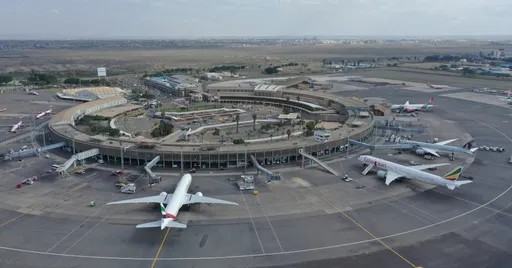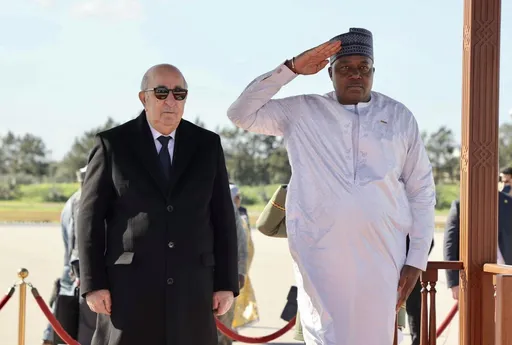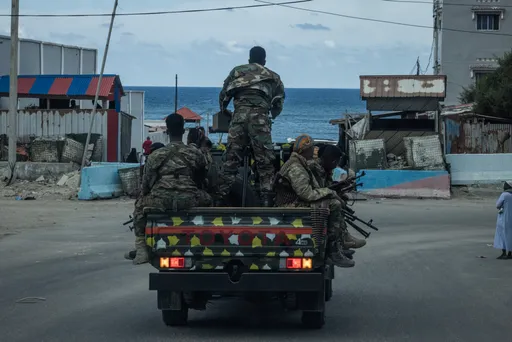By Coletta Wanjohi
When modified shipping containers – called ‘BioNtainers’ – arrived in Rwanda in March, they marked a massive leap for Africa in potentially achieving self-sufficiency in vaccine production.
The need for ‘BioNtainers’ – modular factories fitted with manufacturing solutions – also highlights the biggest problem that has blighted the continent’s efforts in producing life-saving drugs – lack of infrastructure.
But the worst may be over for the continent – home to an estimated 1.3 billion people – as several nations rush to set up vaccine manufacturing facilities, mainly with the help of well-known multinational companies.
“The appetite for setting up and expanding vaccine manufacturing facilities and manufacturing for other health products on the continent is growing,” says Dr George Ogwell, the acting director of the Africa Centres for Diseases Control and Prevention (Africa CDC).
“We are encouraging a coordinated approach where different types of vaccines are being manufactured by different countries and facilities so that we don’t have a flooding of one type of vaccine,” he adds.
The ‘BioNtainers’ supplied by the German pharmaceutical company BioNTech will produce up to 50 million doses of the Pfizer-BioNTech Covid-19 vaccine annually.
A wake-up call
Africa’s low vaccine production capacity exposed the continent to severe shortages during the height of the Covid pandemic, and countries were forced to rely on the inequitable distribution of vaccines from developed countries.
Only about 44% of Africa's population is fully vaccinated against the coronavirus and the threat of Covid-19 is still as high as ever, according to the Africa CDC.
There have been over 256 thousand deaths from the COVID-19 in the continent so far.
But beyond COVID-19, the African Union has also considered producing vaccines for other diseases including Lassa fever, Rift Valley fever, Ebola, HIV and cholera.
The World Health Organization says there are less than 10 African manufacturers, and all are based in just five countries: South Africa, Egypt, Morocco, Senegal and Tunisia.
And only 1 percent of the vaccines used in the continent are manufactured in Africa.
The Africa CDC aims to have African countries develop, produce and supply at least 60% of their vaccine needs – between 1.4 and 1.7 billion doses yearly – by 2040.
“More than 30 new vaccine manufacturing initiatives are now already underway in Africa, and momentum is gathering to make this expansion possible,” says Dr Ahmed Ogwell, the acting director of the Africa CDC.
BioNTech began construction of its vaccine facility in Kigali in June 2022.
“It is not going to be producing for Rwanda only,” says Yvan Butera, the junior health minister of Rwanda. “It is going to be producing for the continent.”
In Kenya, the government has finalised an agreement with the US-based biotechnology company, Moderna, to set up a vaccine plant. The company hopes it will produce 500 million doses of various vaccines each year to serve African countries as well as help respond to health emergencies.
A long road
Self-sufficiency in vaccine production, however, could take a while.
Research by the African Union shows that many countries need more education programmes relevant to vaccine manufacturing.
Many with the required expertise move to higher-income regions where the pay is much better.
Rwanda and Kenya have asked global manufacturers planning to set up production in their countries to ensure technology transfer to their citizens.
The Africa CDC is also encouraging countries to look beyond just vaccines.
“We need to manufacture our diagnostic kits, therapeutics, and countermeasures like masks and PPEs."
A debate at the World Trade Organization is to have an extension of a waiver of intellectual property rights on Covid-19 vaccines to diagnostics and therapeutics. It is bearing little fruit.
Big pharma companies from developed nations argue that any extension will have a “significant adverse impact on the entire innovation ecosystem”.


















.JPG?width=512&format=webp&quality=80)




